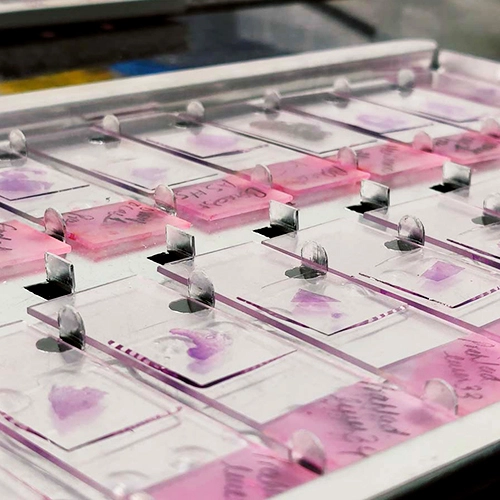Advancing Medical Research with Quality Human Biological Samples
 iBioSpecimen
iBioSpecimenIn the constantly changing world of medical research, top-notch human biological samples are central to driving discovery and improving healthcare outcomes. These biospecimens—blood, tissue, plasma, and other human-derived materials—lie at the heart of millions of clinical studies, diagnostics, and drug development pipelines. For researchers, clinicians, and pharmaceutical firms, having access to ethically derived and well-preserved human biological samples is not only advantageous—it's critical.

The Role of Biospecimens in Modern Research
The contemporary landscape of biomedical research is largely contingent on the presence of reliable human biospecimens. Such samples enable researchers to study disease development, genetic diseases, and responses to treatments in a manner that cannot be replicated by artificial models. Whether oncology research, neurology, or infectious disease studies are being conducted, the use of human-derived materials results in more precise data, accelerated innovation, and improved patient care.
The effect is even stronger in significant medicine. Human biological samples allow researchers to know how people react to treatments at a molecular level, resulting in more individualized and effective treatments. As the demand for this type of research grows, so does the need for ethically collected and well-documented biospecimens.
Ensuring Quality and Ethical Standards
All human biological samples are not equal. The validity of a research study depends on the quality of the specimens used. That is why proper documentation, handling, and sourcing of biospecimens are important. Quality control practices like cold chain logistics, standardized collection protocols, and detailed data annotation guarantee that the samples remain intact during the supply chain.
In addition to technical standards, ethical sourcing is equally vital. Consent procedures, anonymity of donors, and adherence to local and international laws and regulations must be rigorously followed. These processes build trust and ensure that the samples help advance scientific and medical studies without necessarily compromising ethics.
Meeting Research Demands with Scalable Solutions
The international research community needs not just access to excellent biospecimens but also a partner who is able to grow with project demands. From small-scale academic studies to huge pharmaceutical studies, collecting, storing, and delivering samples has to be streamlined and seamless. A reliable biospecimen partner allows researchers to concentrate on creativity instead of procurement issues.
With improvements in biobanking and digital data management, the system of sourcing and tracing human biological samples has become more efficient. This enhances turnaround times, facilitates regulatory compliance, and maximizes research efficiency—finally translating into accelerated scientific advancements.
For researchers looking for reliable, ethically sourced, high-quality biospecimens, iBiospecimen Research Network provides end-to-end solutions designed to address your research needs. Reach out today to support your next project with confidence and integrity.
Subscribe to my newsletter
Read articles from iBioSpecimen directly inside your inbox. Subscribe to the newsletter, and don't miss out.
Written by

iBioSpecimen
iBioSpecimen
iBioSpecimen is a prominent virtual biobank in the U.S., changing the paradigm through which researchers, clinicians, and biospecimen providers identify and share biological specimens. Our mission is to connect these communities, facilitating efficient, ethical access to high-quality biospecimens that facilitate medical advances. Powered by advanced search, standardized annotation, and HIPAA-compliant architecture, we make secure, reliable connections within and across our networks. Every sample is in strict quality and regulatory compliance, making it possible for life science innovation and accelerating the research towards better patient care and outcomes.